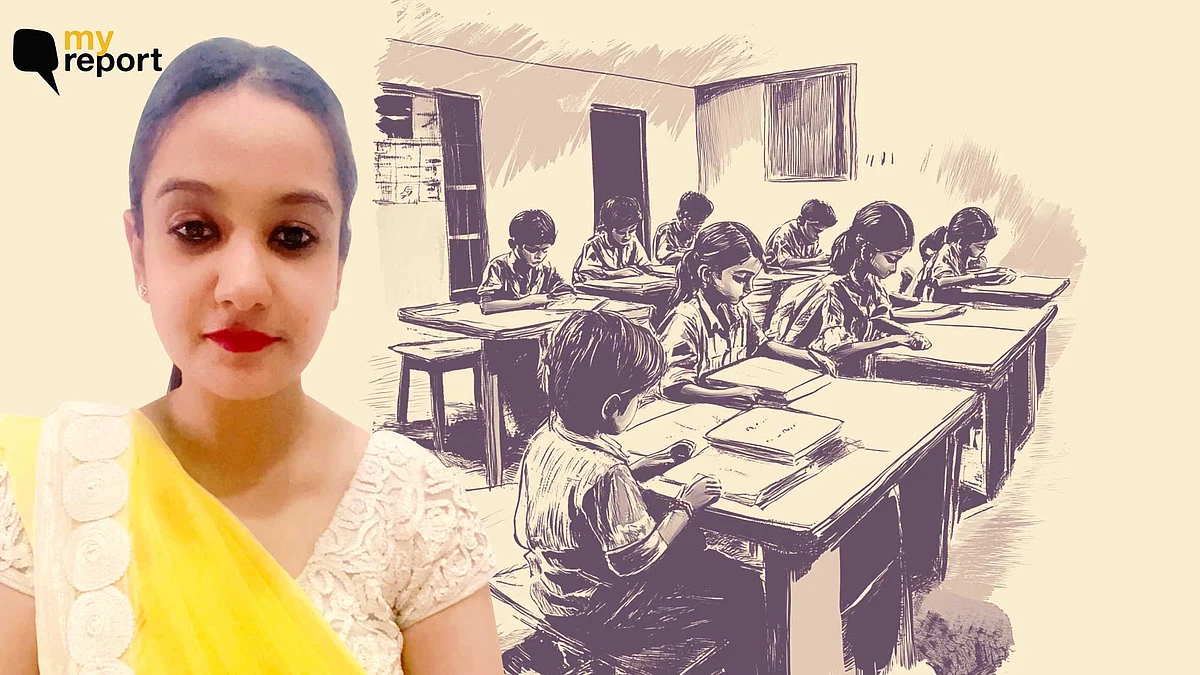
'Teaching My Class About Unity, Shared Values Helped Them Heal After Pahalgam'
"Education alone cannot stop bullets, but it can change minds," writes a Meerut-based teacher.

advertisement
The terror attack in Pahalgam on 22 April, in which terrorists brutally murdered 26 tourists, sent shockwaves across India. What's even more disturbing is that news reports suggest the attack was a deliberate targeting of non-Muslims based on their religious identity—a chilling reminder of how hatred can fracture our shared humanity.
As a teacher in Meerut, I felt a profound responsibility to ensure that the seeds of division sown by such acts do not take root in the hearts of my students.
'Promoting Interfaith Understanding Through Festivals'
The lessons I introduced post-Pahalgam centred on empathy, resilience, and the strength of shared humanity.
I encouraged students to share their personal stories of compassion across religious lines—such as tales of neighbours helping each other during tough times.
An 11th-grade student from the class I teach recounted how, in Malda’s Ramdhantola village, Muslim neighbours supported a grieving Hindu family after Eid prayers in April 2025, helping with funeral arrangements and demonstrating unity despite regional tensions.
Another student shared that during the 2020 Kerala floods, a Muslim family in a Kozhikode village helped their Hindu neighbours rebuild their damaged home.
The Muslim family provided food, labour, and materials, while the Hindu family later reciprocated by hosting an Eid celebration for the Muslim community, strengthening their bond.
These stories came as a stark reminder to all of us of how we have lived with communal harmony for centuries, despite occasional conflicts and tensions.
The interfaith story circle was especially powerful—students connected stories from their own traditions with others they had never heard before.
Role-play sessions allowed them to step into each other’s shoes, and break down stereotypes. These activities weren’t just academic exercises; they were opportunities for students to see each other as individuals, and not as representatives of a religion.
But by creating a classroom environment rooted in respect and open dialogue, I watched the atmosphere shift. Students began to open up, share their thoughts, and listen to one another.
'Let's Build Bridges, Not Walls'
For other teachers looking to foster interfaith harmony, my advice is simple: start small, but stay consistent. You don’t need grand gestures to make a difference.
Encourage group work and collaborative projects that bring students from different backgrounds together. A project as simple as researching a festival or sharing a family story can spark meaningful conversations.
This approach ensures the classroom remains a secular space, where no single worldview dominates, and every student’s voice is valued.
The Pahalgam attack was a stark reminder of the dangers of exploiting religion for violence, and it’s easy to see how such incidents can fuel blame and fear. We’ve already witnessed threats against Kashmiri students in places like Dehradun, a reaction that only serves the goals of those who seek to divide us.
Education alone cannot stop bullets, but it can change minds. It can shape a generation that rejects hate and embraces friendship across differences.
The government must do its part by enhancing security without resorting to collective punishment of Muslims or locals, which only deepens mistrust.
In the face of the Pahalgam tragedy, we must choose humanity over division. Let us honour the victims by building bridges, not walls—by teaching our children to respond to hate with understanding and to fear with compassion.
As I watch my students laugh, learn, and grow together, I am reminded that hope begins with them. And it’s our job to nurture it.
(Loveena Jain Kapoor is an educator at Meerut Public School in Meerut, Uttar Pradesh, committed to fostering interfaith harmony and understanding through the power of education.)
(All 'My Report' branded stories are submitted by citizen journalists to The Quint. Though The Quint inquires into the claims/allegations from all parties before publishing, the report and the views expressed above are the citizen journalist's own. The Quint neither endorses nor is responsible for the same.)
- Access to all paywalled content on site
- Ad-free experience across The Quint
- Early previews of our Special Projects
Published: undefined